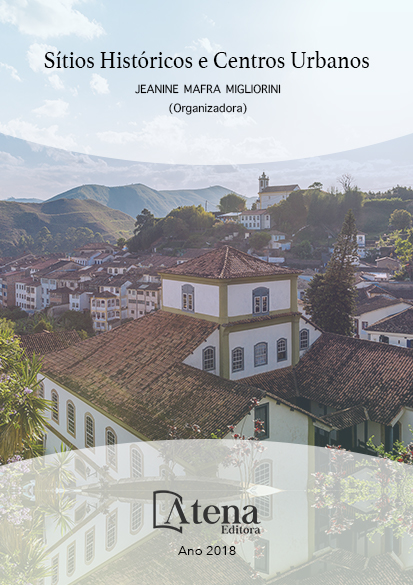
A EDUCAÇÃO PATRIMONIAL COMO MOTIVADORA DO AUTO RECONHECIMENTO HISTÓRICO DO INDIVIDUO SOCIAL CACERENSE
Partindo-se da necessidade em
se gerar uma reflexão sobre a educação
patrimonial no contexto da cidade de Cáceres
em Mato Grosso, principalmente no que
tange a comunidade local que não conhece
e tampouco reconhece o valor patrimonial
existente. Isso se torna relevante no momento
em que é necessário abrir os diálogos sobre os
patrimônios. Visto que a degradação física dos
bens edificados influencia no desenvolvimento
do sentimento de pertença na relação cidadão/
cidade, isso se deve principalmente à falta de
auto reconhecimento do indivíduo social em
relação ao meio urbano histórico cacerense,
em virtude de não existirem meios tangíveis de
difundir o conhecimento acerca do patrimônio
tombado. Dessa forma objetiva-se entender
a educação patrimonial como método de
conscientização e sensibilização cultural e
histórica. A educação patrimonial vem como um
instrumento de importância para a composição
do sentimento de cidadania e pertencimento,
garantindo ferramentas para se apropriar da
cultura e a história que moldou a cidade vivida,
motivando o mesmo a ler e interpretar o espaço
que o envolve, inserindo-se no processo de
construção continuada da história de vida
urbana e em seu contexto na comunidade.
Assim o indivíduo observador passa a ser um
agente ativo de transformação social, intervindo
na realidade cotidiana de modo a refletir nos
espaços os anseios de suas contribuições,
impelindo a legítima efetivação da função social
da cidade e da história construída. A reflexão
que se lega, transcende os aspectos materiais
da contextura do centro histórico de Cáceres,
empregando a educação patrimonial como
instrumento de mudança
A EDUCAÇÃO PATRIMONIAL COMO MOTIVADORA DO AUTO RECONHECIMENTO HISTÓRICO DO INDIVIDUO SOCIAL CACERENSE
-
DOI: Atena
-
Palavras-chave: Patrimônio Histórico, Educação Patrimonial e Cáceres.
-
Keywords: Historical Heritage, Patrimonial Education and Cáceres.
-
Abstract:
Starting from the need to generate
a reflection on heritage education in the context
of the city of Cáceres in Mato Grosso, especially
in what concerns the local community that
does not know and does not recognize the existing patrimonial value. This becomes
relevant at the moment when it is necessary to open the dialogues on the patrimony.
Since the physical degradation of built goods influences the development of the sense
of belonging in the citizen / city relationship, this is mainly due to the lack of selfrecognition of the social individual in relation to the historical urban environment of
Caceres, because there is no tangible means of spreading the knowledge about the
patrimony overturned. In this way, the objective is to understand patrimonial education
as a method of awareness and cultural and historical awareness. Heritage education
comes as an instrument of importance for the composition of the feeling of citizenship
and belonging, guaranteeing tools to appropriate the culture and history that shaped
the city lived, motivating the same to read and interpret the space that surrounds it,
in the process of continuous construction of the urban life history and in its context in
the community. Thus the observer becomes an active agent of social transformation,
intervening in everyday reality in order to reflect in the spaces the yearnings of his
contributions, impelling the legitimate fulfillment of the social function of the city and the
constructed history. The reflection that transcends the material aspects of the historical
center of Cáceres, using heritage education as an instrument of change.
-
Número de páginas: 15
- Thais Lara Pinto de Arruda
- Rafael Leandro Rodrigues dos Santos
- Veruska Pobikrowska Tardivo
- Rafael Leandro


